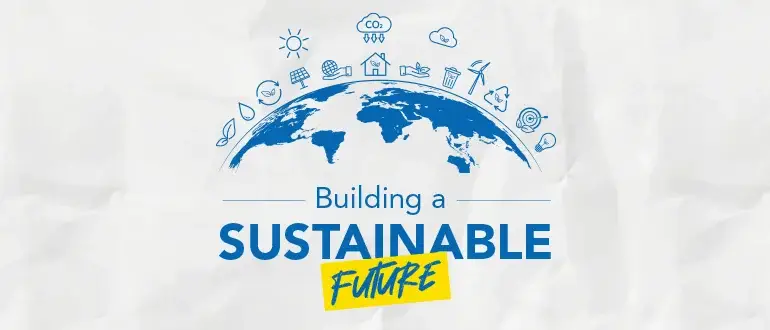Subscribe to get weekly insights
Always stay up to date with our newest articles sent direct to your inbox
Published on 14 May, 2025
favorite17Likes
4895 Views
4 min Read

Climate change is very real and its impact is spreading rapidly. The Reserve Bank of India (RBI) has estimated that up to 4.5% of India’s GDP could be at risk by 2030 owing to just one aspect of climate change - lost labour hours from extreme heat and humidity. This makes sustainability not just an environmental issue but a pressing economic and health concern as well. What’s more, we have reached a stage where the onus of protecting the environment cannot merely rest with governments and large corporates; its something that we can and should contribute to in our daily lives.
In this edition of Care Connect, we're exploring environmental sustainability in greater depth and, more importantly, providing practical, actionable steps you can take to make a tangible difference.
Reference: indiatoday.in, cleartax.in
Environmental sustainability is about striking the right balance between progress and responsible use of natural resources. It's about recognising our impact on the planet and making conscious, informed choices to ensure that we leave a thriving, liveable world for future generations.
Think of it this way: If we treat our planet like a bank account, we need to ensure we do not withdraw more than we deposit so that we leave an abundant legacy for our children. Sustainability is about living within our means and ensuring the account remains healthy for the long term.
____________________________________________________________________________
It's easy to think of climate change, deforestation, and pollution as abstract, far-off issues. But the truth is, these challenges are deeply personal and profoundly impact our daily lives. Consider this: the air we breathe, the water we drink, the food we eat –are all directly affected by the health of our planet.
Degraded air quality leads to respiratory problems, water scarcity threatens our communities, and environmental damage disrupts food supplies, affecting both availability and affordability.
By actively embracing sustainability, we're not just embracing an environmental movement; we are taking concrete steps to safeguard our own health, the well-being of our families, and the resilience of the communities we call home.
Protecting the planet is, fundamentally, about protecting ourselves.
To build a lasting future, we must uphold the core pillars of sustainability that hold it up:
Ready to move beyond theory? Here are some practical steps to contribute to real change.
A few simple actions can promote sustainability from the comfort of your home:
You can promote sustainability in your community by:
Simple steps can promote sustainability in your workplace:
India is actively working towards a sustainable future through a multi-pronged approach:
____________________________________________________________________________
Ignoring environmental issues is not a neutral choice; it's a decision with profound and far-reaching consequences. The price of inaction is environmental degradation, which directly threatens our health, economy, and society's stability.
Inaction is not a viable option. To mitigate these risks and build a sustainable future, we must start acting now!
Many people think of environmental sustainability as something separate from their personal finances, but the two are deeply intertwined. Making sustainable choices can often lead to significant cost savings in the long run. For example, reducing energy consumption lowers your utility bills, and minimising waste can save money on groceries and household items.
Moreover, supporting sustainable businesses and investing in green technologies can create economic opportunities and contribute to a more stable, prosperous future for everyone. This section explores how embracing sustainability is good for the planet and good for your wallet.
So, whether you're just starting your sustainability journey or looking to deepen your impact, make this the moment you commit to positive action. Every small change counts, and together, we can create a world where both people and the planet thrive.
Don't keep this knowledge to yourself! Share this article with your loved ones so they can join the movement.
Till next time...
Stay Healthy, Stay Informed!
Team Care Health
Always stay up to date with our newest articles sent direct to your inbox
Loading...